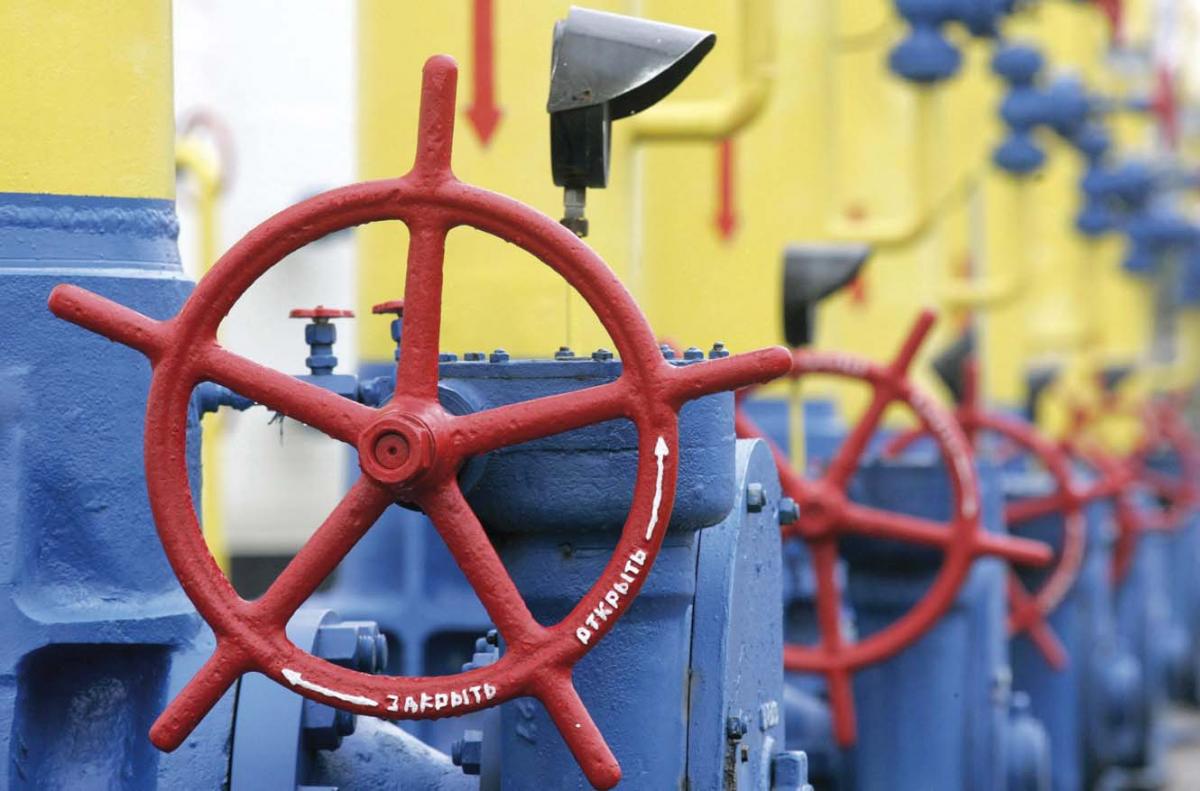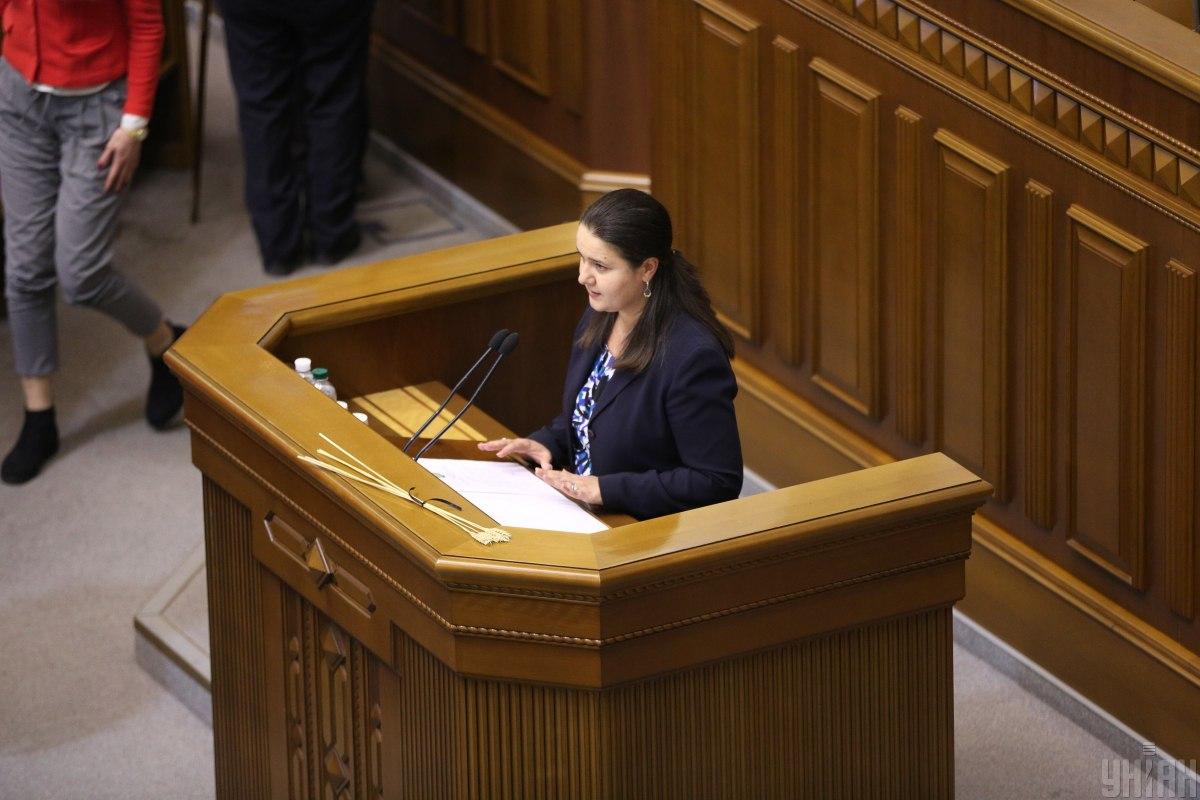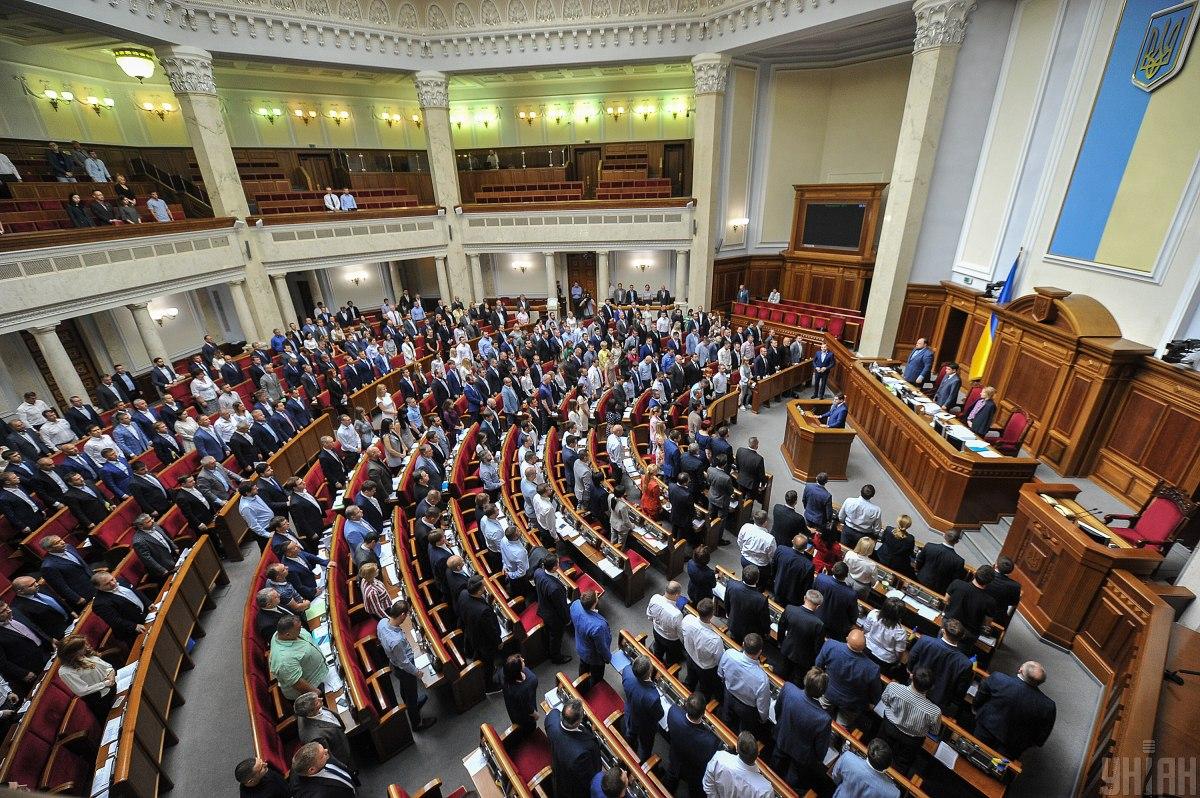
Week's balance: Land to farmers, budget to deputies, and gas to Europeans
Finance Minister Oksana Markarova has presented to MPs the draft state budget for 2020, the government decided on the date of the long-awaited launch of the land market, while Naftogaz held in Brussels a productive round of negotiations on the transit of Russian gas – these are the main economic news of the past week.
Prime Minister of Ukraine Oleksiy Honcharuk has made an important statement – the opening of the land market is scheduled for October 1, 2020. This must bring to an end long-term uncertainty in one of the most pressing issues for Ukrainian society.
In fact, the land issue divided the Ukrainians in half. According to a survey conducted by Razumkov Center in September 2019, almost half of Ukrainians (49%) don't support the law on the land market. This polarization of views is largely due to the actions of politicians, for whom the land has always been the subject of speculation. The main argument against the market opening is the possibility of Ukrainian land been bought up "greedy foreigners."
However, Honcharuk assured the public that only Ukrainian citizens or Ukraine-registered companies would be able to buy arable land – at "transparent biddings".
At the same time, according to Honcharuk, the Cabinet proposes to ensure the priority right to purchase land to those who are currently leasing it.
"This is absolutely necessary. We really do not want those who are currently cultivating land to lose the opportunity to cultivate it in the future. This market should be convenient not for speculators but for people who actually work with that land and make products," the prime minister said.

President Volodymyr Zelensky echoed Honcharuk's statement.
"Horror stories about Chinese, Arabs or aliens who would remove our soil in wagons are nonsense. Land is the property of citizens," Zelensky said.
According to him, the issue of land sales is too sensitive and therefore requires wide public discussion to "dispel all the myths and manipulations that have been sown in the minds of citizens over the last 20 years" and to find the best and balanced solutions in the open land market model. At the same time, Zelensky noted that in the modern world people should have the right to dispose of their property.
"Land is the property of citizens, and finally, they should have not a hybrid, but a full right of ownership to their native land. It’s the right to own, use and dispose of their land, otherwise the Soviet Union begins, where we, the citizens, would supposedly own our apartments, but couldn’t sell them legally, which is just wrong," the head of state emphasized.
In addition, Zelensky said the lack of a land market spawned illegal "gray" schemes, fraud, and a billion-dollar thriving shadow market.
The government promises to approach the issue of opening the land market carefully. In particular, according to Honcharuk, land in Ukraine can only be sold if farmers have access to financial resources. In this regard, the government, through compensation from the state budget, plans to lower the credit rate for farmers below 5%, so that after opening the land market, they can participate on equal terms with large businesses in the purchase of arable land. The government also plans to use another mechanism to support farmers – the partial loan guarantee fund, which implies that the state will provide banks with additional loan guarantees.
Honcharuk assured that he would provide these conditions, since he believes that a moratorium on farmland sale impedes the development of the national economy.
"We expect that the launch of land reform will lead to the Ukrainian economy growing by at least 2%," the prime minister emphasized.
Gas triangle

Last week, Brussels hosted another round of trilateral negotiations at the political level between Ukraine and Russia, with the participation of the European Commission, on long-term gas transit to the EU via Ukraine after 2019. The sides failed to agree on the signing of the new contract, but some progress was outlined anyway.
According to Vice President of the European Commission, Maros Sefcovic, Ukraine and Russia agreed that the future contract should be based on European rules.
In turn, Naftogaz emphasized that Gazprom for the first time allowed the possibility of concluding a contract according to European rules from January 1, 2020.
"Naftogaz notes the interest of the Russian side in constructive negotiations and their higher willingness to accept the modern regulatory framework for gas transmission via the Ukrainian GTS. In particular, for the first time Gazprom accepted a possibility to work in line with European rules since 1 January 2020 if they are fully implemented in Ukraine by the end of this year," the company said in a statement.
Russia's step is largely connected with the problems that Ukraine's aggressive northern neighbor is experiencing, having occupied part of Ukrainian territory and waging a war against Ukraine in various plains. In particular, this is a failure to meet the deadlines for introducing the Nord Stream 2 and Turkish Stream bypass pipelines at full capacity. In addition, the European Court confirmed the restrictions for Gazprom to use the OPAL pipeline, which was planned to be exploited within the Nord Stream 2 system, which would not allow Russia to fully distribute gas across Europe.
Therefore, Russia is well aware of the complexity of the situation and the impossibility of refusing gas transit via Ukraine. On the other hand, the Kremlin has no arguments left to accuse Ukraine of disrupting negotiations. Indeed, in all the previous negotiations, Russia confirmed only one thing – no EU energy rules regarding gas contracts with Ukraine, since Kyiv was not ready to separate (unbundle) Naftogaz into supply and transit structures, according to the principle of the Third European energy package.
Indeed, in recent years, unbundling has been hindered by tense relations of ex-Prime Minister Volodymyr Groysman and Naftogaz leadership. But the problem has exhausted itself on Sept 18 when the new Cabinet of Ministers, headed by Honcharuk, transferred the management of Gas Pipelines of Ukraine from the Ministry of Energy and Environmental Protection to the Ministry of Finance. Besides, on the eve of trilateral gas talks, the Cabinet approved a new plan for separating the gas transmission system from Naftogaz of Ukraine.
According to the prime minister, this decision allows by the end of the year to complete the creation of an independent GTS operator.
The next round of negotiations will be held in late October. By this time, Naftogaz CEO Andriy Kobolyev says the Ukrainian legislation regulating the gas industry will have been improved and brought in line with European rules.
"We need to redeem the time lost in attempts to reinvent some 'unique wheels'. The experience of effective cooperation to agree a working mechanism for unbundling we have had over the past three weeks is inspiring. With the same approach to ensuring full compliance of Ukrainian gas regulations with European rules, we will get the things done properly and in due time," said Kobolyev.
In turn, Naftogaz CCO Yuriy Vitrenko said Ukraine needs to continue preparing for the scenario of termination of transit from January 1, since time is running out before the deadline for concluding a new transit contract. "As expected, we did not reach the negotiations – the Russian side has not yet accepted a consolidated position of the European and Ukrainian sides. Refusal to implement the decision of the Stockholm arbitration cannot be a prerequisite for the start of negotiations on a new transit contract. On the positive note, I would say that the parties are ready to continue consultations on the implementation of European rules in Ukraine and their application to the new transit contract. But the time until the contract expires is running out, and negotiations haven't started yet. Therefore, unfortunately, we need to continue to prepare for the termination of transit from January 1. Well, and neither should we allow that the use of these tripartite 'consultations' are an excuse to build the Nord Stream 2," he said.
Balanced and realistic budget
On the last working day of the outgoing week, the Rada took for consideration the draft state budget for 2020 developed by the government. The document assumes revenues in the amount of UAH 1.079 trillion, expenses – at UAH 1.170 trillion, and deficit ceiling – at UAH 95 billion, or 2.09% of GDP.
Presenting the draft to the MPs Minister of Finance Oksana Markarova called it a balanced and realistic project providing for financing of all priority expenses.

According to Markarova, all budget revenues are based on current tax legislation, but the adoption of laws on the legalization of gambling and amber production will imply an increase in revenue.
Markarova also said that a third of budget expenditures will go for repayment and servicing of public debt, but fulfillment of these obligations will allow reducing public debt to GDP to 46.7% by the end of 2020.
The Minister explained that after Ukraine restructured its debts in 2015, there were several years when there was no need to pay anything back, but since 2019 the situation has changed and now it is time to pay.
"But the fact that we have fully budgeted and will fully fulfill our obligations will allow us to reduce our debt to GDP to 46.7% at the end of 2020," she added.
Also, Markarova noted that the draft law on the state budget provides for the preservation of existing tax rates. Also, the draft budget is based on the current macro-forecast of May 2019 with a GDP growth of 3.3% and an exchange rate of UAH 28.2 per dollar.
"The revision of this macro forecast, which the Budget Code allows to make between the first and second readings, is yet to come. Therefore, today our budget is based on real GDP growth of 3.3%, those macroeconomic indicators and social standards that were approved by the previous Cabinet," she said.
At the same time, the minister named the conditions due to which Ukraine can expect that next year the gross domestic product will grow by 5-7%. "We declared an ambitious goal – a rise by 5-7 percent annually. This is a very ambitious goal, and it is achievable," said Markarova.
Head of the Verkhovna Rada Budget Committee, Yuriy Aristov, in turn, said that the committee expects from MPs comments and suggestions to the draft law by October, also noting that all proposals must be balanced. "That is, an increase in expenses or a reduction in revenues requires determining the sources of their coverage," Aristov said.
Effective Rada
Ukrainian MPs this week continued their fruitful work.
An important decision was the appointment of a new head of the State Property Fund – ex-director of real estate and infrastructure management at Ukrposhta, Dmytro Sennychenko.

In his address to deputies, Sennychenko noted that he sees his task in leaving in state ownership only those enterprises that work efficiently. Also among his priorities, Sennychenko named attracting investors and fighting corruption.
"My task is to carry out truly honest, open, transparent privatization of those enterprises that will not be defined as strategic ones […] Of the 3,600 state-owned enterprises, 2,300 are more or less alive, while the rest are leftovers on paper," he said.
The Verkhovna Rada also adopted a number of important economic laws. In particular, the parliament reduced the list of licensed types of activities in the field of telecommunications. Now, in order to obtain the right, the operator will only need to notify the relevant regulator about the start of their operations.
The Rada also enhanced protection of intellectual property rights to the layout of semiconductor products, in particular, microcircuits, LEDs and transistors. The law will fix the right to exclusive use of developed microcircuits for 10 years from the date of first use of the product. The conditions for filing an application for product registration will also be simplified and electronic filing will be allowed.
In addition, the Rada has improved the procedure for financial restructuring. In particular, the deputies allowed conducting a joint financial restructuring procedure for several debtors who are related parties (it is about a group of legal entities under common control, but with different, not common creditors).
An important decision of the Rada was the adoption of a law to reduce pre-threshold purchases in the Prozorro procurement system from UAH 200,000 to UAH 50,000. According to MP Roksolana Pidlasa, now it will be much more difficult to procure from affiliated entities so there will be less corruption in public procurement.
The Rada also adopted a law on the submission of unified reporting on a single social contribution and personal income tax. According to Chairman of the Committee on Finance, Tax and Customs Policy, Daniil Hetmantsev, the law will help ease conditions for doing business.
Parliament also ratified the amendments to the agreement with Turkey to improve tax data sharing and assistance in collecting taxes. The deputies amended the agreement with Switzerland to counter tax base erosion and withdrawal of profits from taxation.
The last week of September is also expected to be full of important events. In particular, President Vladimir Zelensky in New York plans to hold his first meeting with Donald Trump, leader of the world's largest economy and our strategic partner, the United States. Meanwhile, the State Statistics Service will report on the performance of the national industry for August.
Oleksandr Kunytsky

